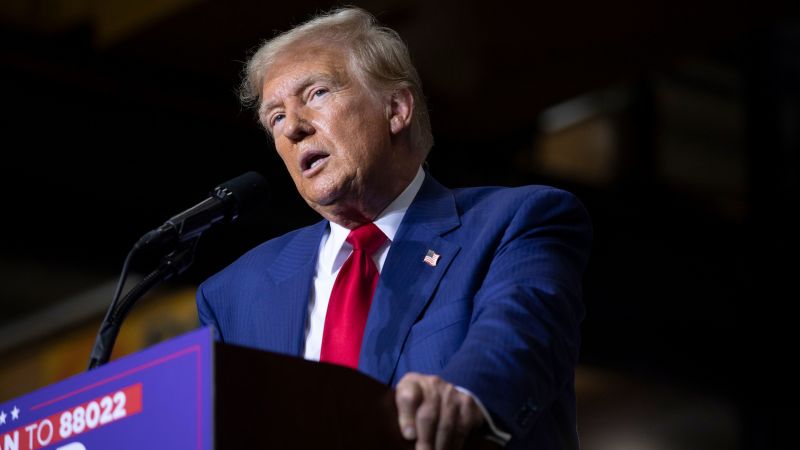Former president Donald Trump announced a new policy at a campaign event in Michigan that would pay for in vitro fertilization (IVF) treatments under his administration. The policy would require the government or insurance companies to cover all costs associated with IVF treatment. Trump stated that the aim of this policy was to encourage more families to have babies, and he also announced plans to allow new parents to deduct major newborn expenses from their taxes in support of families. While Trump expressed his support for IVF treatments, he did not provide details on how the payments for these treatments would be funded.
The announcement of this new policy comes at a time when Democrats have been using threats to IVF access to criticize Republicans, including Trump, for allegedly seeking to restrict access to reproductive health care. In response to a ruling by the Alabama Supreme Court that declared frozen embryos as children, which led to some providers halting certain IVF services, Trump voiced his support for women having access to IVF. Alabama Governor Kay Ivey signed a law protecting IVF access in the state following this court decision. Trump reiterated his belief that abortion policies should be determined by states and expressed support for exceptions in cases of rape, incest, and when the life of the mother is at risk.
Sarafina Chitika, a spokesperson for the Harris-Walz campaign, questioned the sincerity of Trump’s new proposal, suggesting that his own platform could potentially ban IVF and abortion nationwide. Chitika accused Trump of lying and claimed that women’s freedoms were being threatened by his actions. She emphasized that only one candidate in the race, Vice President Kamala Harris, could be trusted to protect women’s freedom to make their own healthcare decisions. The statement highlighted the ongoing debate and concerns over reproductive rights and access to healthcare in the political landscape.
Trump’s announcement of a policy to cover IVF treatments under his administration raised questions about the funding and implementation of such a program. While the proposal aimed to support families and encourage childbirth, critics raised concerns about the potential impact on reproductive rights and access to healthcare. The debate over abortion policies, IVF access, and women’s freedoms continued to be a contentious issue in the political arena. The differing perspectives and approaches of political candidates underscored the importance of these issues in shaping public policy and regulations surrounding reproductive health care.
The lack of details provided by Trump on how the IVF treatments would be paid for left room for speculation and debate among supporters and opponents of the proposal. The connection between reproductive rights, access to healthcare, and government policies remained a highly contested and divisive issue. The contrasting views expressed by different political figures highlighted the complexity of these issues and the challenges of finding common ground on such sensitive topics. As the debate over reproductive rights and healthcare policies continued, the importance of informed decision-making and public advocacy became increasingly evident in shaping the future of healthcare access and regulations in the United States.













